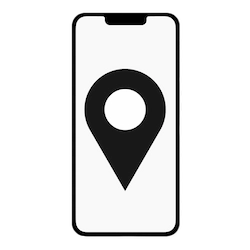How Long Will Insurance Pay for a Rental Car After an Accident?
A Comprehensive Overview
Being involved in an auto accident can be an overwhelming experience. Aside from any physical injuries or emotional trauma, there’s also the challenge of managing without your primary means of transportation. For many, the natural step is to seek a rental car while theirs is under repair. Insurance often plays a key role in covering these expenses, but how long can one expect their insurance to foot the bill? This article delves into the intricacies of rental car coverage after an accident.

Understanding Rental Reimbursement Coverage
Not all auto insurance policies automatically cover rental car costs after an accident. This coverage, often called “rental reimbursement,” is typically an additional option for policyholders.
Key Aspects:
- It covers the cost of a rental car while yours is being repaired due to a covered claim.
- This doesn’t apply if you rent a car for other reasons, such as a trip or when your car is undergoing routine maintenance.
Duration of Coverage
The primary question for most is, “How long will my insurance cover the rental car?” The answer primarily depends on these factors:
- Your Policy: Rental reimbursement policies usually have daily and per-claim limits, like $30 per day up to $900. This would theoretically provide for a rental for up to 30 days.
- Repair Duration: If your car is in the shop, the insurance will generally cover the rental for the duration of the repair. However, if the repair takes longer than the policy limit, you’ll be out of pocket for the extra days.
- Total Loss Situations: If your car is deemed a total loss, the insurance might pay for your rental until they pay you for your totaled car. The time frame can vary, but many insurers will cover the rental for a few days after issuing the settlement check.
Determining Fault
In certain situations, the duration for which insurance covers rental car costs is affected by the determination of fault:
- If You’re At Fault: If you caused the accident and have rental reimbursement coverage, your insurance should cover the costs up to your policy limits.
- If Another Party Is At Fault: If someone else caused the accident, their liability insurance might pay for your rental car. In this scenario, the duration often depends on their policy limits and the time it takes to settle the claim.
Using Preferred Rental Agencies
Some insurance companies have partnerships with specific rental agencies. Using these preferred providers might:
- Provide direct billing between the rental agency and insurance, reducing out-of-pocket expenses.
- Consider an extended rental period at a discounted rate.
Out-of-Pocket and Reimbursement
Sometimes, you might have to pay for the rental car upfront and seek reimbursement:
- Ensure you understand the reimbursement process, including necessary documentation and submission deadlines.
- If your daily rental cost exceeds your policy’s limit, the difference will be out of pocket.
Upgrades and Additional Costs
It’s tempting to opt for a rental car upgrade, but remember:
- Insurance typically covers a standard vehicle. You might have to cover the cost difference if you choose a luxury or SUV model.
- Additional services like GPS or insurance from the rental agency will be your responsibility.
Mitigating Extended Costs
To avoid extended rental durations and associated costs:
- Stay proactive. Regularly check with the repair shop about progress and expected completion dates.
- In total loss situations, promptly provide the necessary documentation to your insurer to expedite the claim process.
Other Transportation Options
Some policies or situations might allow for alternative transportation reimbursements:
- Your insurance might cover public transportation or taxi fares if car renting isn’t feasible. Always check your policy details and discuss them with your insurer.
Conclusion
Navigating the post-accident landscape can be challenging, and ensuring you have a means of transportation during this period is paramount. While many insurance policies offer solutions in the form of rental reimbursement coverage, it’s essential to understand the specifics—duration, limits, and associated responsibilities—to avoid unexpected out-of-pocket expenses. By staying informed and proactive, you can ensure a smoother transition while your vehicle is being repaired or replaced.
